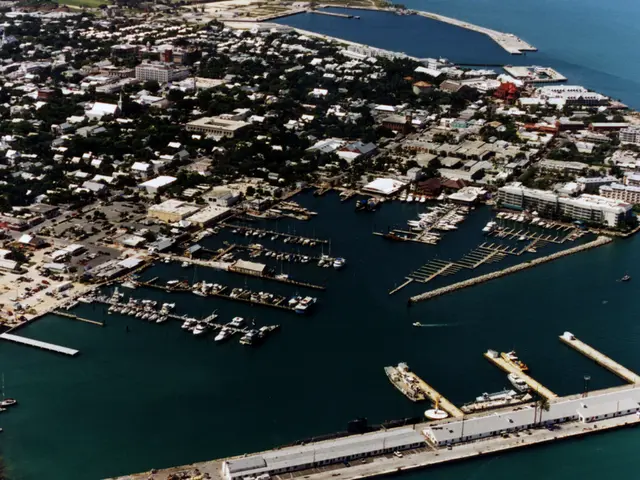Israel's proposed occupation of Gaza sparks backlash and divisiveness within the nation
Israel is facing mounting pressure and controversy over its plan to reoccupy the Gaza Strip, with concerns over the safety of hostages, humanitarian crises, and political fallout.
Prime Minister Benjamin Netanyahu has announced a new phase in the war, stating that Israel must "complete" the defeat of Hamas to secure the release of hostages. However, this plan has been met with strong opposition from within Israel’s military leadership, international actors, and Jewish organizations.
The United Nations has warned that expanding such an operation could lead to "catastrophic consequences." A top U.N. official, Miroslav Jenca, warned that a full occupation of Gaza would have "catastrophic consequences" and endanger the lives of both Palestinians and Israeli hostages.
The Israeli military's Chief of Staff, Eyal Zamir, warned that a full occupation would be like "walking into a trap," endangering the lives of hostages and troops. Zamir suggested alternatives to a full occupation, such as encircling specific areas where Hamas is believed to be hiding.
The plan would involve taking complete military control of the Gaza Strip, including forcing the evacuation of residents, with the aim of disarming Hamas and securing the release of Israeli hostages. However, critics argue that this could lead to a humanitarian disaster, with increased displacement and worsening conditions for Gaza’s civilian population.
The potential risks extend beyond humanitarian concerns. There are fears of elevated risk to hostages held by Hamas due to intensified military operations in areas where they are kept. The plan could also lead to an extended conflict, potentially evolving into a protracted insurgency or “forever war,” with little prospect of fully dismantling Hamas or resolving the conflict sustainably.
There are also international and regional backlash risks, including greater global isolation for Israel and intensified Arab and European criticism, alongside risks of drawing regional actors like Iran further into conflict. Political and social ramifications inside Israel include fears of deepening erosion of US support and the potential slide of Israeli democracy due to expanded occupation and settlement policies.
Several top IDF leaders oppose the full reoccupation, advocating against expanded military action, citing the risks to hostages and troop casualties. There are proposals for alternatives, such as an “all-for-all” hostage swap approach, involving a ceasefire, humanitarian aid increase, prisoner exchanges, and interim governance solutions in Gaza, potentially with Arab forces managing security during Israeli withdrawal.
International calls emphasize ending the war with feasible political solutions rather than further occupation, highlighting the need for a credible “day after” plan involving reconstruction, governance, and law enforcement rather than indefinite military control.
Recent polls show a clear majority of Israelis now favor a deal with Hamas and an end to the war. A leading group representing hostage families warned that Israel's government is on the verge of making a decision that could have disastrous consequences for those still held in Gaza.
Netanyahu is expected to convene the security cabinet on Aug. 7 to finalize the decision on the expansion of the offensive. The Israeli press predicts an escalation of operations, including in densely populated areas like Gaza City and refugee camps. The U.N. Security Council held a special session on Aug. 5 to discuss Israeli hostages in Gaza.
U.S. President Donald Trump stated that a decision to occupy the entire Gaza Strip would be "up to Israel." However, the growing backlash over the plan suggests that Israel may face significant challenges in implementing it.
The proposed reoccupation of the Gaza Strip by Israel, which aims to disarm Hamas and secure the release of Israeli hostages, has sparked debates in the realm of politics, general news, crime and justice, and war and conflicts. Concerns over humanitarian crises and political fallout are prevalent, with the United Nations issuing warnings of potential catastrophic consequences if the operation expands. Israel's military leadership, international actors, and Jewish organizations have expressed strong opposition to the plan, fearing increased risks to hostages and troops, as well as potential erosion of US support and the slide of Israeli democracy. Alternative solutions, such as an "all-for-all" hostage swap approach, are being proposed to avoid these risks and achieve a peaceful resolution.








